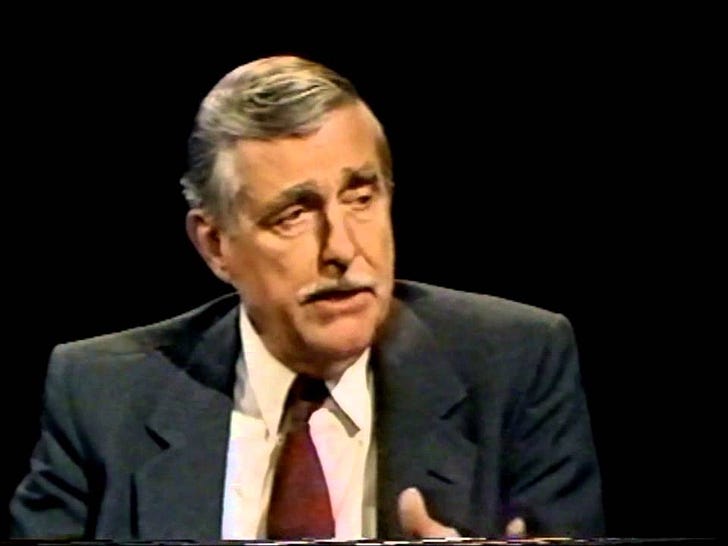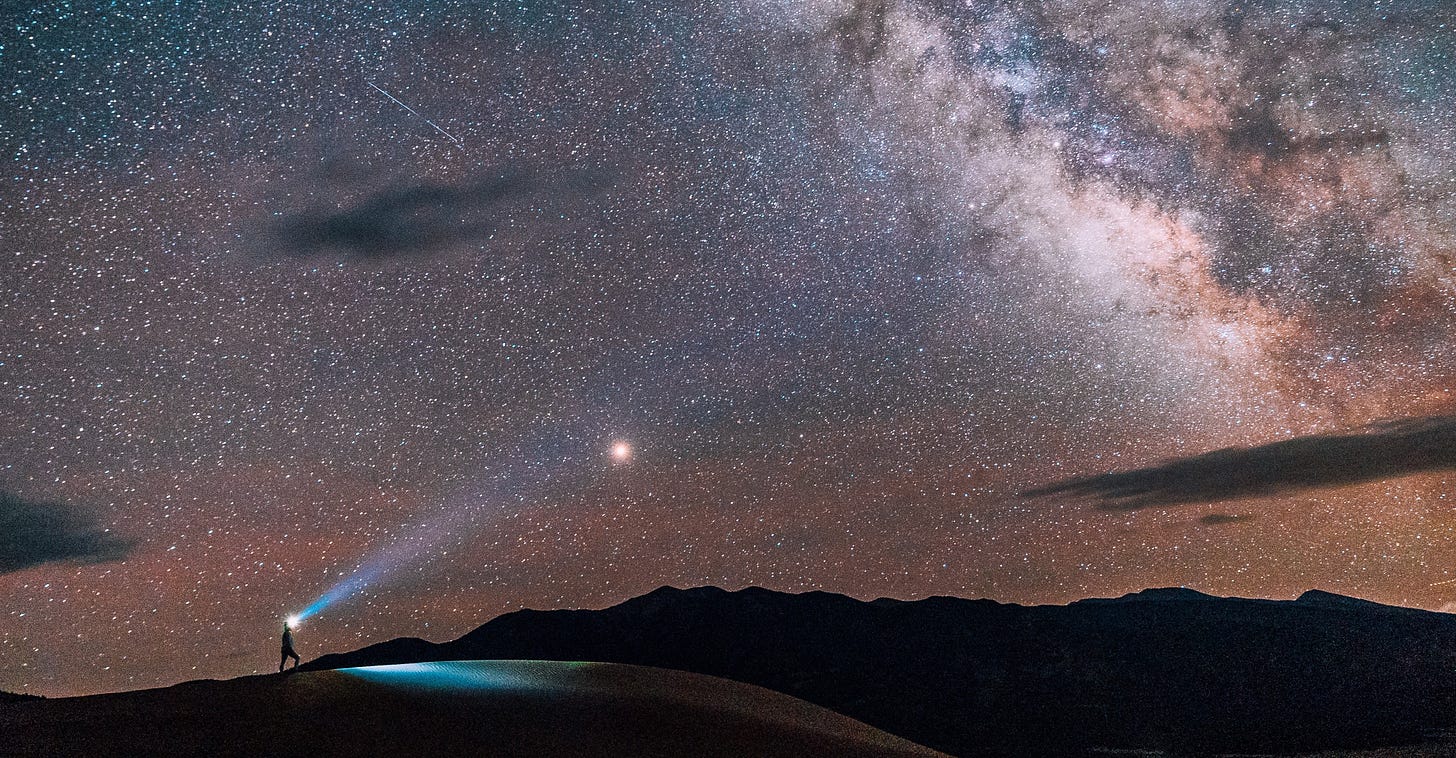Dear Hackers!
In this letter, we are going to the start of it all.
The Big Bang.
I will give you a quick crash course in Big Bang - the Basics, but the central question I would like to raise here, helped by the late American astronomer, Halton Arp, is the following:
How infallible do you think science really is?
From the ‘purist’ of sciences such as physics, all the way through to applied environmental sciences. Is science immune to bias and self interest?
Put another way:
Would basic scientific theories, upon which so many complex layers of financial, personal and political interests have been built, really be capable of fundamental change if the evidence were to warrant it?
The Sky At Night
On a recent Twitter exchange I was reminded of a truly fascinating interview that Arp gave on a very popular British astronomy TV show, The Sky at Night, in 1988. In it, Arp summarised his observations to the late Sir Patrick Moore in what could actually be, in my opinion, one of the most significant 20 minutes of British broadcasting, ever!
Arp’s ultra-calm demeanor, Sir Patrick’s eccentric presentation style, together with the general 1980’s styling may distract somewhat from the significance of what is being said.
The significance of Arp’s observations really cannot be overstated.
A Big Bang Crash Course
A brief background on the Big Bang Basics to help get you up-to-speed:
Light coming from far away objects, observed through powerful telescopes, carries with it information about that object. One such piece of information is known as the ‘red-shift’.
When a train passes by you it’s tone changes at the point it which it ceases to move towards you and starts to move away. This is due to the train’s sound waves becoming stretched out relative to you, the stationary observer as it moves away.
This phenomenon - the ‘Doppler Effect’ - is analogous to what happens to the light waves given off from bright, far-away celestial objects. The wavelength pattern (equivalent to the train’s ‘tone’) gives information about how quickly it is moving away from the observer.
The further away an object is from the observer, the more it appears red-shifted, and therefore the faster it is accelerating away from us.
It follows, therefore, that not only is the universe expanding, but the rate at which it is expanding is increasing.
Now, extrapolate this expansion process backwards. As far as you can go.
Eventually, you reach a point in space and time whereby everything is in the same location, and static, a (very!) long time ago.
This ‘point’ from which everything started to expand is known as the ‘Big Bang’, estimated to have occurred some 13,770,000,000 years ago (give or take!).
UNLESS, of course, Halton Arp is correct, in which case you can throw this idea completely out of the window and start all over again!
What did Arp Observe?
Arp’s observations show a number of distant galaxies, containing multiple quasars (VERY big and bright cosmic objects) with different red-shift properties.
Wait, what?
If these quasars have different red-shifts, then conventional Big Bang theory says that they must be at vastly different distances away from the observer and accelerating at different rates. But Arp’s observations showed that these quasars are connected. Something doesn’t add up.
Is this what falsification looks like?
As it happens, there are other problems linked to conventional cosmological theories which rely on creative mathematics (in other words, ‘fudging the numbers’) to make them go away.
There are other very interesting and testable theories which contradict fundamental ideas of modern cosmology. For example, the work of English physicist, Dr Mike McCulloch and his theory of Quantised Inertia (QI) offers a way to explain among other things the observed patterns of galaxies that doesn’t require mathematical ‘fudge factors’ such as Dark Matter to make it work.
So what if there was no Big Bang?
There would remain some VERY big unanswered questions - questions which many have built careers and reputations off the back of.
How big is the universe? How old is the universe? What is the universe?
As Sir Patrick Moore puts it in his rather understated way;
‘We think we know a great deal about the universe, but do we?’
One cannot really image the extent of the repercussions of Arp’s falsification, if his thesis is accurate.
The idea that ‘science’ can stay completely pure in its pursuit of truth, free from the influence of personal, commercial and political interests, in the face of such an existential challenge is, in my opinion, unrealistic.
The Greenhouse Effect
Please see my earlier letter for more discussion around the Greenhouse Effect theory - one which, I might add, despite repeated claims of ‘consensus’ is contested by many reputable scientists including Nobel prize winners.
Can anyone honestly say that they believe the science around climate change is 100% untainted? That everything you hear on the topic is free from the effects of opportunism and self-interest?
Just imagine if it were shown that climate change is not caused from man made greenhouse gas emissions. The ramifications would be almost incomprehensible. Rather than trying to unpick decades of political, scientific and cultural change, one can clearly see the temptation to just double down on these ideas. This would go far beyond just a few bruised egos.
OK, maybe its easy for me to say. I haven’t built a career, livelihood or reputation on any particular scientific theory being correct. But should anyone have done so given the obviously bad incentives?
Science is a process of continuous challenge, inquiry, and attempts at falsification.
The story of Halton Arp’s work, and more recent ideas by scientists such as Dr. Mike McCulloch, are what makes science FUN, and in my opinion, they keep science PURE.
These ideas are what really allow us to dream and discover, free from self interest and manipulation.
Keep on asking questions!
-Tristan




